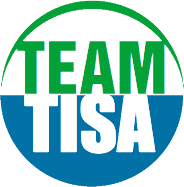TiSA FAQs
What countries are involved in the TiSA?
23 economies are currently part of the TiSA negotiations. These economies make up 77% of the global services market.
Why do we need a special agreement for services?
The services trade functions differently than the goods trade because of the lack of tangible goods. In agreements on the trade of goods, the focus is generally on tariffs. However, tariffs are not often applicable to services. The main barriers to the services trade include cross-border data flow limitations and localization requirements, favorable treatment for state-owned or domestic enterprises, and lack of regulatory transparency. The TiSA seeks to limit these barriers to the international services trade.
Won't reducing these barriers mean the US loses jobs to countries with lower wages?
Actually, the US has a comparative advantage in the services sector, meaning that even taking into account lower wages in other countries, businesses are better-off investing in US-based services. Service jobs, which make up 80% of US private employment, tend to be high-skill, high-paying jobs -- exactly the kind of jobs that are likely to stay in the US and help build the American economy. In fact, if the US services industry is able to expand its exports, the number of services jobs is likely to increase, not decrease.
What are the goals of the TiSA?
The TiSA seeks to promote fair, open trade across all industries in the services sector by reducing barriers to services trade. It will also make provision for a changing technology environment that did not exist when the previous broad services trade agreement, the General Agreement on Trade in Services, was negotiated in the early 1990s.
Is TPA (Trade Promotion Authority) related to the TiSA?
The passage of TPA would give the US a better position from which to negotiate trade agreements like the TiSA. It does not, however, mean that any trade agreements can pass without specific Congressional approval. For more information on TPA, visit the Coalition of Services Industries information page on TPA.
Tags: trade, services, TiSA, international, jobs, TPA
